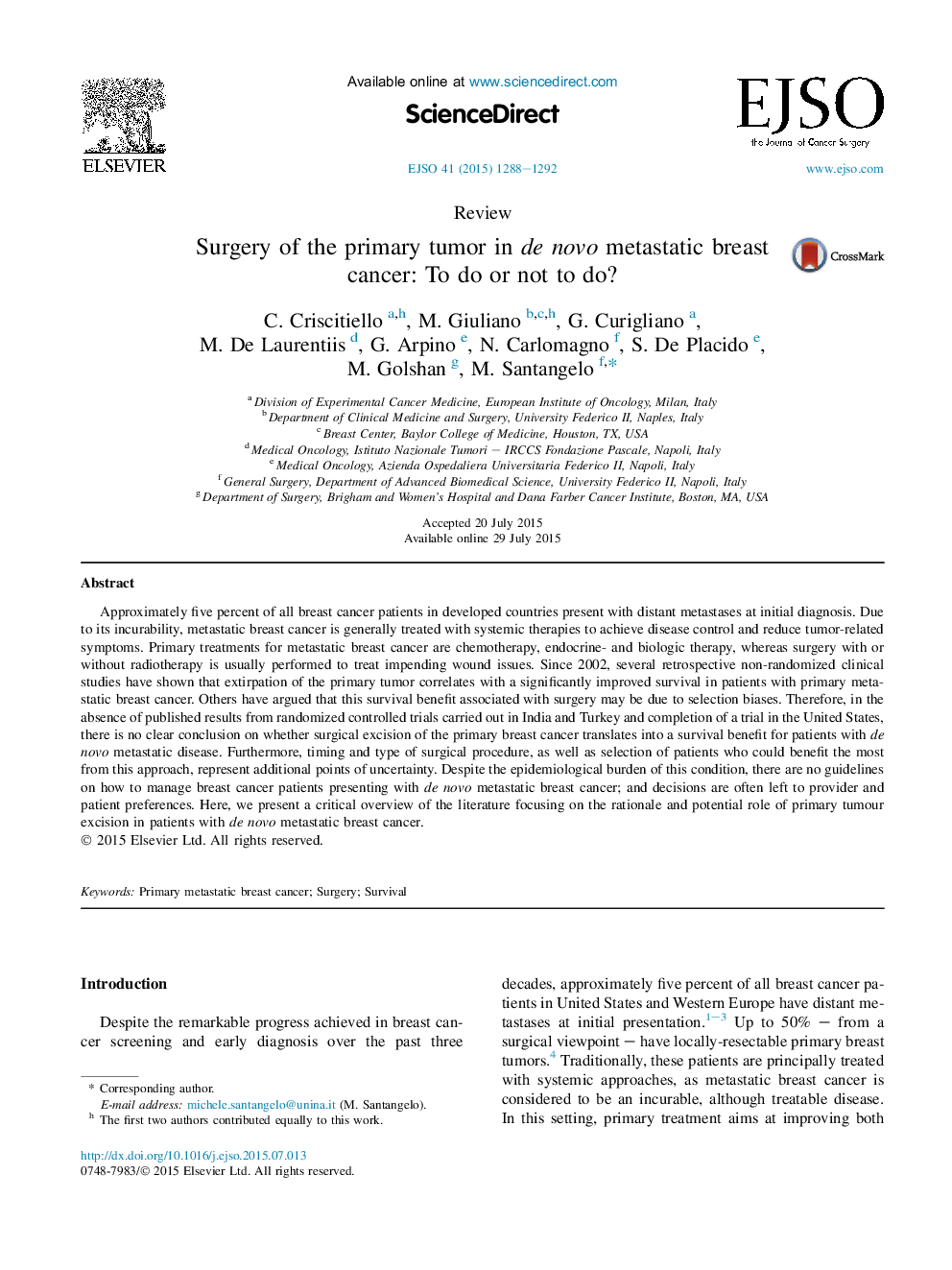| Article ID | Journal | Published Year | Pages | File Type |
|---|---|---|---|---|
| 6191125 | European Journal of Surgical Oncology (EJSO) | 2015 | 5 Pages |
Approximately five percent of all breast cancer patients in developed countries present with distant metastases at initial diagnosis. Due to its incurability, metastatic breast cancer is generally treated with systemic therapies to achieve disease control and reduce tumor-related symptoms. Primary treatments for metastatic breast cancer are chemotherapy, endocrine- and biologic therapy, whereas surgery with or without radiotherapy is usually performed to treat impending wound issues. Since 2002, several retrospective non-randomized clinical studies have shown that extirpation of the primary tumor correlates with a significantly improved survival in patients with primary metastatic breast cancer. Others have argued that this survival benefit associated with surgery may be due to selection biases. Therefore, in the absence of published results from randomized controlled trials carried out in India and Turkey and completion of a trial in the United States, there is no clear conclusion on whether surgical excision of the primary breast cancer translates into a survival benefit for patients with de novo metastatic disease. Furthermore, timing and type of surgical procedure, as well as selection of patients who could benefit the most from this approach, represent additional points of uncertainty. Despite the epidemiological burden of this condition, there are no guidelines on how to manage breast cancer patients presenting with de novo metastatic breast cancer; and decisions are often left to provider and patient preferences. Here, we present a critical overview of the literature focusing on the rationale and potential role of primary tumour excision in patients with de novo metastatic breast cancer.
